Manmeet Singh
- December 20, 2024
- 6 min read
- Marketing Automation
- Blog
I. Introduction
II. What is Marketing Automation?
III. Key Ways Marketing Automation Specialists Optimize Conversion Rates
IV. Leveraging Data for Better Conversion Outcomes
V. Ensuring Consistency in Lead Conversion Efforts
VI. Tools and Technologies to Watch in 2025
VII. Overcoming Challenges in Marketing Automation
VIII. Conclusion
I. Introduction
Marketing automation has evolved from a helpful tool into the cornerstone of modern marketing strategies. As the industry advances, so do the technologies that shape it. This article explores the pivotal trends set to define marketing automation in 2025 and how agencies can adapt to remain competitive.
II. What is Marketing Automation?
At its core, marketing automation uses software to manage repetitive tasks like email campaigns, social media posting, and customer segmentation. These tools free up time for marketers while delivering highly personalized customer experiences.
Imagine a digital assistant that not only executes tasks but anticipates and adapts to customer preferences—that’s the promise of marketing automation today, and it’s getting smarter every year.
III. The Evolution of Marketing Automation
Marketing automation has come a long way from its origins as basic email drip campaigns. Early tools were functional but cumbersome. Now, with advancements in AI, machine learning, and predictive analytics, these platforms offer proactive insights and decision-making capabilities.
Fast forward to 2025: automation platforms are not just tools but strategic partners, empowering agencies to deliver faster, smarter, and more measurable results.
IV. Why Marketing Automation is a Must for Agencies
For agencies, marketing automation is more than a convenience—it’s a competitive advantage. Clients demand results that are both scalable and data-driven, and automation enables this with precision. Whether managing a campaign targeting 1,000 leads or 100,000, these tools ensure that every interaction is optimized for impact.
V. Key Trends Shaping Marketing Automation in 2025
1. Hyper-Personalization and AI: Personalization has moved from being a nice-to-have to a non-negotiable. Customers expect brands to understand their preferences, and AI is enabling personalization at scale.
- AI-Driven Insights: Advanced algorithms analyze customer behavior, purchase history, and engagement patterns to create detailed profiles.
- Real-Time Personalization: Messaging and offers adapt dynamically to customer actions, creating tailored experiences. Imagine an e-commerce site showcasing a returning visitor’s favorite items—automatically.
2. Conversational AI as a Marketing Tool:Conversational AI, including chatbots and voice assistants, is redefining customer interaction.
- Next-Gen Chatbots: Today’s bots understand context, tone, and even humor, making them feel more human and enhancing engagement.
- Voice Marketing: As devices like Alexa and Google Assistant become ubiquitous, voice-based marketing is an emerging frontier. Agencies must adapt campaigns to ensure their clients’ brands are top-of-mind for voice search queries.
3. Multi-Channel Marketing Automation: Audiences no longer stick to one platform, and marketing automation is rising to the challenge by enabling seamless, omnichannel strategies.
- Beyond Traditional Channels: Email and social media remain critical, but automation is expanding into SMS, WhatsApp, and push notifications for a comprehensive approach.
- Exploring the Metaverse: Virtual worlds are no longer futuristic concepts. Brands are beginning to test immersive ad formats within metaverse platforms, and automation tools are evolving to support these efforts.
4. Predictive Analytics for Proactive Strategies: Predictive analytics is shifting marketing from reactive to proactive.
- Forecasting Customer Needs: Instead of responding to customer actions, agencies can anticipate trends, predict churn, and even estimate customer lifetime value.
- Data-Driven Campaign Timing: Historical data helps brands engage with customers at the right moment, like sending timely reminders or exclusive offers based on past purchases.
5. Sustainability and Ethical Automation: As consumers demand more transparency and accountability, agencies must align their automation practices with ethical and sustainable values.
- Eco-Friendly Campaigns: Automation can promote green initiatives like carbon-neutral products or sustainable packaging.
- Responsible Data Use: Agencies must prioritize ethical data collection and be transparent with customers about how their information is used.
VI. Tools and Technologies to Watch in 2025
- AI-Powered Content Creation: AI tools are stepping up to handle content ideation, drafting, and even video creation, enabling agencies to save time without sacrificing quality.
- Advanced CRM Integration: Seamless connections between automation tools and CRMs are critical for creating a unified, data-driven approach.
- Compliance-Ready Platforms: With increasing global regulations, automation platforms must offer features like consent management and data encryption to ensure legal compliance.
VII. Overcoming Challenges in Marketing Automation
- Managing Complexity: As powerful as automation platforms are, they can be daunting. Agencies must invest in training to equip teams with the skills to manage these tools effectively.
- Maximizing ROI: The ultimate goal of marketing automation is to boost efficiency and results. Agencies that embrace these tools strategically will see higher ROI and greater client satisfaction.
VIII. Conclusion
Marketing automation in 2025 promises transformative opportunities for agencies ready to evolve. From AI-driven personalization to voice marketing and the metaverse, the future is filled with innovation. By staying informed and agile, a marketing automation agency can lead the way in delivering cutting-edge, impactful campaigns.
The key is not just adopting these trends but mastering them—turning automation into a strategic asset that drives measurable growth. Let’s unlock the full marketing automation potential for your business with Code & Peddle.
The following posts may interest you –
What is HubSpot? Learn How Its 6 Hubs Can Fuel Your Business Expansion
FAQs
Marketing automation uses software to streamline repetitive marketing tasks like email campaigns, social media management, and customer segmentation. For agencies, it’s crucial because it enhances efficiency, enables personalization at scale, and delivers measurable results.
Agencies can prioritize ethical practices by being transparent about data usage, ensuring compliance with regulations, promoting sustainability in campaigns, and avoiding intrusive or manipulative tactics.
Key tools include AI-powered content creation platforms, advanced CRM-integrated automation systems, compliance-ready tools with consent management, and metaverse-focused ad solutions for immersive marketing.
Conversational AI includes chatbots and voice assistants that simulate human-like interactions. These tools can improve customer service, drive engagement, and create opportunities for voice-based marketing campaigns.
Agencies often encounter challenges like platform complexity, a steep learning curve for teams, and the need to demonstrate ROI. Overcoming these requires training, strategy alignment, and careful tool selection.
















